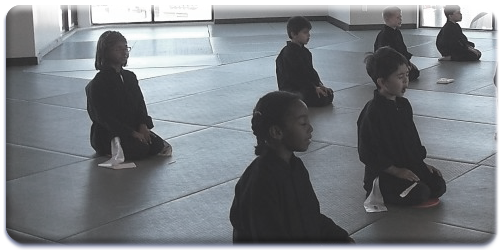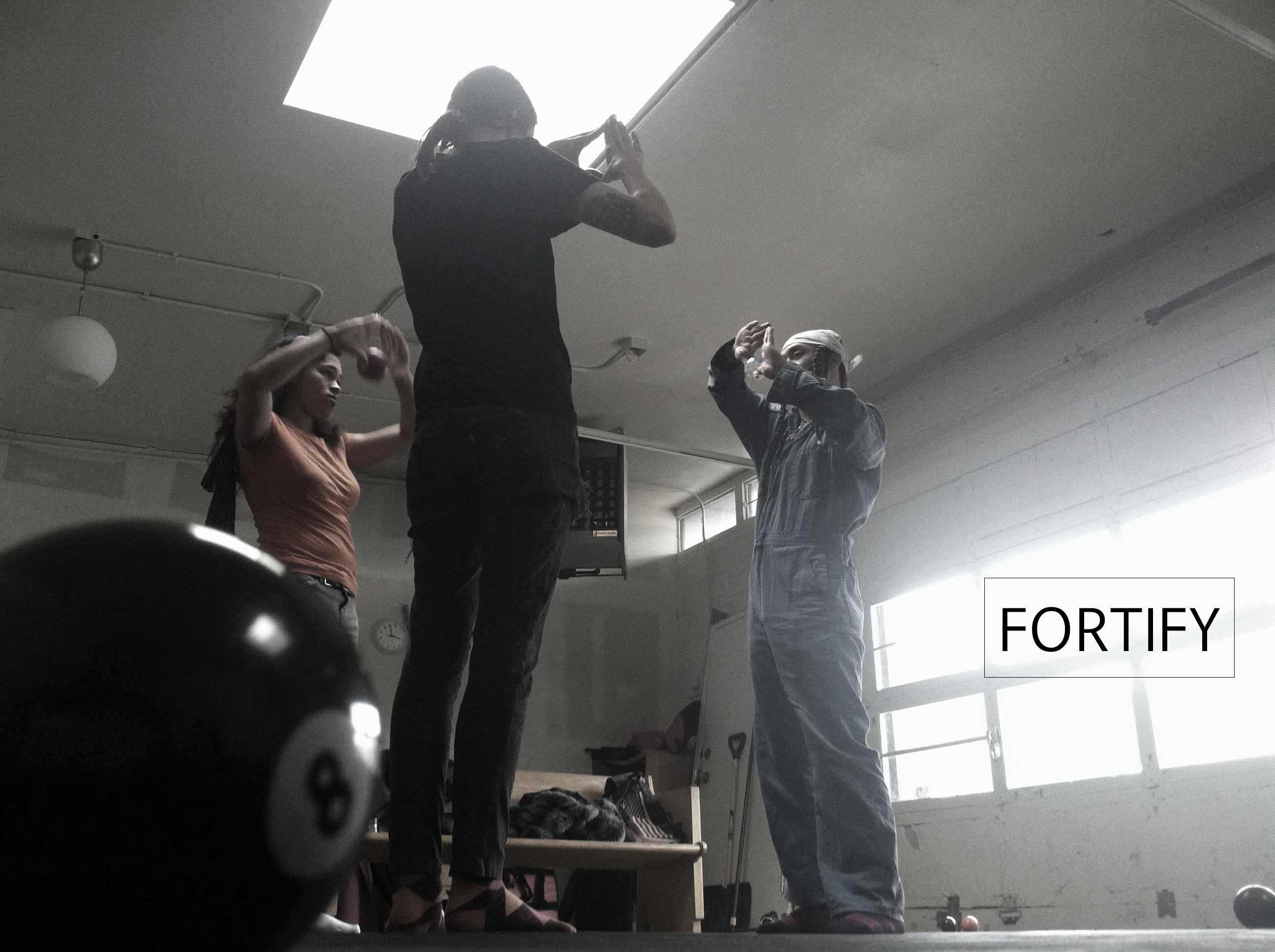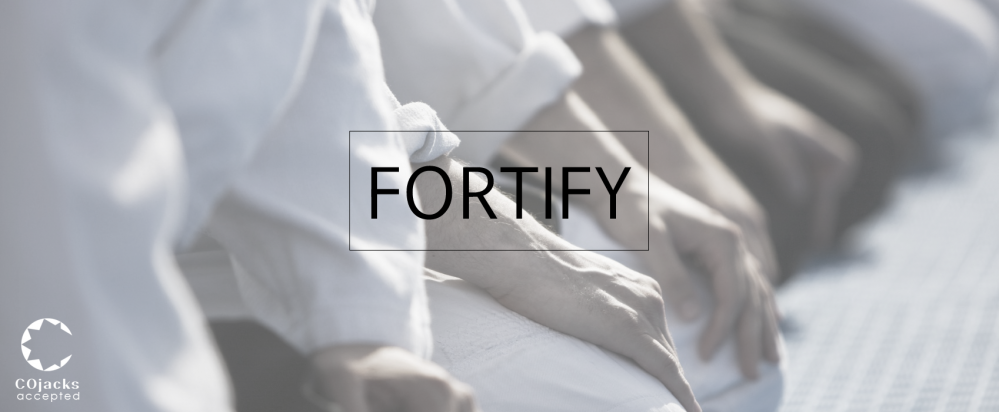| By Deacon K.E. Rodda |
A parent from the school where I teach an after-school martial arts program approached me recently with complaints concerning my methods. Two things that she said really stuck with me, and hopefully I’m not misunderstanding her. She said that she believed punishments were reasonable in a martial arts class, but that twenty push-ups is too many for a student to do in a Karate class (three issues there, I’ll address them further on). She also stated that these classes were meant to be fun, and that she wanted to make sure that all of the students are consistently being engaged in fun ways. I told her that I felt her perspective was valid, and that I’d consider it. This is me considering.

I care if my students have fun. Having fun in class, especially in a difficult class, with challenges, and even punishments, is a sign of a light spirit. The skill of maintaining a light spirit in the midst of challenge is a skill that can mean the difference between escalating and diffusing a conflict. So there are jokes in my class, there are moments of levity when I demonstrate exaggerations of bad technique, and the whole class laughs, and knows that it’s okay to laugh. We had a whole class once concerning the capacity to express feelings (humor, anger, frustration, sadness, etc.), and then regain composure. The exercises had a monumental effect. Levity is an important skill, one of many.
I will never prioritize my students having fun in my class. Immediately following this conversation with the parent I went into the classroom to face my students. Whenever there is an issue of any kind we all sit down and discuss it. I asked them if they thought that the class was too hard, if they thought that push-ups were too hard, if they thought the class was fun, if they thought the class was supposed to be fun, and so forth. Very few of the students who have stuck with my class to this point, over half way through the year, thought that the class was too hard. One student said we needed to do more push ups. I told him to give me ten. One student, who had expressed the following opinion with great fervor before, lamented that she felt that the classes weren’t challenging enough because the whole class was always waiting for inattentive students to get their act together, or to finish doing their push-ups. Outside of this experience I’ve had one parent tell me that my class was her son’s favorite part of the week. Other parents have sought me out to tell me that I had significantly inspired their children, or that they talked about my class all the time. The notion that my classes – which are entirely elective – should be easier has been wholly overrun. (Yes, I understand confirmation bias. I kept count.)
There was a sentiment expressed by some of my students that I would like to focus on for a moment. I have to acknowledge that I’m focusing on it largely because it is my own. But it was offered to me by my students, my elementary school age students, and unanimously from the students who have been with me for the last two years and excelled tremendously in my class. To the question of whether or not the class ought to be fun these students each expressed that the class was for learning, and becoming skilled at the techniques. How novel, class is for learning!
For everyone else, I explained the idea thusly: Have you ever had the experience of trying to do something and not quite getting it? Have you ever worked at it to the point of frustration, venturing well into territory that was no longer fun, but kind of a self imposed torture that you knew would only really get better if you got all the way through it? Most of the children put up their hands. We listened to their stories about learning to ollie, and to throw a ball with a lacrosse stick, and so forth. Upon asking these students, mostly the same ones who said that class is for learning, if they were having fun while they were frustrated the answer was a resounding ‘no’. Some said they cried, which is a common side effect of failing to ollie a skateboard. But did they have a lot of fun doing what they had learned afterward, another unanimous opinion. The satisfaction of a goal achieved is the priority in my class. Having fun is not. Are the two things at odds, certainly not.
Concerning push-ups: Push-ups aren’t actually a part of my pedagogy. There is only one reason that students ever do push-ups in my class – somebody decided to be disrespectful to the class. Also, I mete out push-ups in units of five, so a class with twenty push ups is an especially disruptive class.
More importantly, I don’t teach Karate. I have nothing against Karate, but I’m an instructor of Ninjutsu. Ninjutsu is an ideal martial art for children’s study not only because of its offering of self-defense skills and discipline, but because we equip children to more safely be children. An instructor of mine once commented that the only thing we do absolutely better than every other martial art is fall down. I laughed, because it’s funny. It also kinda bummed me out. In Karate and Tae Kwon Do you punch and kick, and little else. You get really good at punching and kicking, though. In other disciplines you might have a sword in your hand through all of every class, or you’re just rolling around on the floor with someone in a knot of limbs all the time. In our system we do those things, but what do we do just as often if not more? – roll and fall. After thirteen years with this system I fear no black ice. We almost certainly produce more stunt professionals than any other system per capita. Actually, our school owns a film company, and runs a stunt team, for that reason. Additionally, we offer a comprehensive set of techniques for getting away from an assault situation – as opposed to having to fight your way through an opponent. Goodness knows we have a reputation for running away.
So what would you rather have, a kid that gets entertained for an hour a couple days a week after school, or a kid that stands up after they fall out of a tree, or are thrown from their bike? Sounds dramatic, but that is simply what we do.
– a little after thought.
I was not being disingenuous with the parent with whom I spoke. I would never fail to consider the opinion of a parent, and in light of the class discussions which followed, I will be changing my classes. I didn’t used to have students do push-ups. It’s relevant here that push-ups are specifically a punishment for overt and sustained disrespect, students shoving and berating each other, responding to instruction with crass remarks and sarcasm, and also ignoring warnings to not do these things. My response to this kind of behavior two years ago was to remove these students from the class, and have them sit against the wall of the gym. Class proceeded very well this way, and many students made magnificent progress.
Why did I stop doing things this way? Because it breaks my heart. I hate to imply to any student that they are not welcome. Even during that era of training I would be sure to tell students who sat out the previous class that they were welcome back into class, and that every day is a new day. Some of my current best students spent over a month against the gym wall in the beginning. Eventually they realized that I was genuine, and believed that they had every capacity to succeed in this art. At the same time I saw student’s self image withering, students who are consistently given every reason to believe that they are ‘bad kids’ even though they’ve never done anything truly awful in the whole of their budding little lives. So when I say “breaks my heart” understand that I mean ‘stood-up again/sad looks from the old guy at the cafe bar/lost my puppy’ Breaks-My-Heart.
Upon serious consideration of my duty in teaching this class, as well as the behest of parents who seem to not like hearing that their kids are doing a lot of push-ups (Which I personally don’t get – my daughter hammers out push-ups like a beast, and I’m proud of that. To each their own.) I will be turning my attention to those children who truly wish to learn, and returning to the policy of isolating those who lack the spirit of triumph. I am committed, though, to not leaving them behind. I’ve got a few thoughts about how, but – for anyone who’s read this far – I would love to hear what you think.
I fully believe in respecting all viewpoints, so – as long it’s on topic, and not crass (my young kids are reading this stuff guys), I will allow all comments. So tell me if I’m outright wrong.
– on a related note.
It is a common sentiment that children in martial arts classes benefit from an improved capacity for discipline, and respect. I believe this to be true, when the classes are run well. I also believe that a student of ballet, piano, horsemanship, or any classical pursuit which rewards focus, and inherently disallows progress in the absence of respect for the medium will experience this same increase in discipline. When I say ‘inherently’, what I mean is that a ballerina’s medium is her body, and failure to respect it is punished with stagnation in the art, as well as potential injury. A horseman’s medium is their horse and failure to respect it results in being thrown. A piano is less punitive, but no more forgiving. Without focus and respect in classical arts physics itself disallows progress, and punishes disrespect. It is also worth noting that Aikido and Judo are other good options in the martial arts for learning to take falls, and to escape assault. It would be a matter of disrespect to not acknowledge the enormous merit of other systems with similar virtues.
Alright, that’s all I got. Tell me your thoughts.


